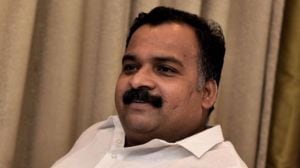Attacks on the info law won146;t work
Indians have a right to know what advice an officer gave and if it was disregarded, why it was disregarded

Though the government has dropped the move to introduce amendments to RTI Act in the current session of Parliament, perhaps it has not yet abandoned its resolve to ruin this perfectly good law and, in the process, lose much of the goodwill it had earned for introducing it.
What is not clear is the government8217;s rationale for wanting to exclude not just file notings but also all information prior to decision-making, most information about transfers and postings, and identities of those giving advice or opinions. Interestingly, at a recent meeting the concerned minister denied that specific problems were behind the move, but the July 26 media statement of the PMO and an unsigned and undated note circulated to some MPs, reportedly by the department of personnel, reveal some of the reasoning for excluding file notings.
The first rationale offered is that the Freedom of Information Act of 2002 prohibited access to notings, as did all the state acts and the transparency laws in most 8220;developed democratic countries8221;. The fact is that the 2002 Act prohibited access to notings only during the decision-making process, as did most state acts. In any case the UPA government repealed the 2002 Act, as it was considered too weak. Therefore, its weakness cannot now be used as a justification to weaken the RTI Act. Also, most foreign countries actually provide varying levels of access to the 8220;deliberative process8221;, and the few 8216;developed8217; ones that do not, have other well-established systems which actually work, for ensuring bureaucratic accountability 8212; as evidenced by the low levels of corruption there.
Another rationale is the presumption that individual officers are likely to face threats to their safety or life, and unnecessary litigation, if notings are made public. However, the existing RTI Act already exempts information whose disclosure would endanger the life or safety of any person. Meanwhile, secrecy and lack of accountability continue to threaten the lives and safety of millions of 8220;common8221; Indians, who are victims of state apathy or terror.
Litigation by those with grievances against the government is often based on misapprehension and conjecture, and costs the litigant time, money and effort. Prior access to the information, which usually becomes accessible only after a case is filed, would allow the potential litigant to make an informed decision on whether there is cause for legal action. Greater transparency would also pressure the government to give less cause for legal action. Litigation would, consequently, decrease.
The third rationale is that officers will not give free and frank opinions if these are accessible to the public, and consequently the quality of governance would suffer. However, officers are pressured to write against their conscience not please note by the public, but by their bureaucratic and political bosses. These bosses already have access to file notings and do not need the RTI Act. In fact public disclosure of file notings would help ensure that officers do not succumb to such pressures. It would deter bosses from over-ruling their subordinates and taking decisions that have no basis in law, or are against public interest.
However, the most outrageous rationale offered is that 8220;in the constitutional scheme of governance adopted by us, it is the government of the day and not the individual officers, who is responsible to the people for its actions/decisions. Bureaucrats, in turn, are responsible to the government of the day8221;. Clearly, the primary responsibility of the bureaucrat is to the Constitution and to the people of India, and not to the government of the day. Even when the final decision rests with the government of the day, the responsibility for the advice given always remains that of the individual officer who gave that advice. And the people of democratic India have a right to know what advice the officer gave, and if it was disregarded, why it was disregarded. This is a fundamental right in a democracy.
Any problems the government faces in implementing the RTI Act should be shared with the people of India. Then democratic solutions can be found. Otherwise, the struggle to protect this right will go on as, most likely, will the attacks on this right. Over time, such attacks will make the people even more aware of how critical this right is, and strengthen their resolve to defend democracy.
The writer is a former convener of the National Campaign for the Right to Information
- 01
- 02
- 03
- 04
- 05































